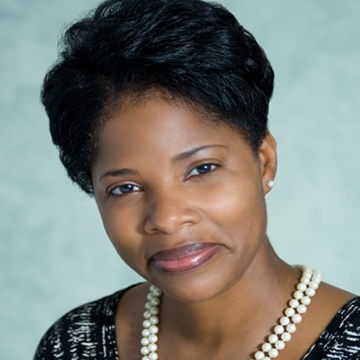Since our initial conversation with Charlotte Streat ’00MBA, she has been promoted to Vice President, Diversity, Equity, & Inclusion (DEI) Business Advisor for the Investments Business and Corporate Functions at Liberty Mutual. In her new position, she represents the DEI office within the company, providing coaching to leaders, defining DEI strategies for specific business units, and guiding DEI initiatives.

In 2020, we spoke to Charlotte Streat about her role as Vice President and Senior Talent Partner at Liberty Mutual, “My role as a Sr. Talent Partner is to be a strategic thought partner, asking the questions that may feel uncomfortable at times yet will yield more collaborative conversation and better business talent outcomes,” she said.
Charlotte’s approach to advancing the DEI practice is not only to think about women and underrepresented talent but also about where there may be barriers in the system and how to mitigate those barriers for the future, as the leaders work to move their business forward says Streat. “My intent is to be bold and ask the uncomfortable questions. Once we move through them, we can bring the right talent to maximize diverse thinking and innovation within the organization.”
Her experience at Simmons was pivotal to her career path. “We all had growth mindsets,” she says of her professors and her peers. “The environment was so inclusive that we could all fail together, learn together, and become friends.” The support of those friendships was invaluable. They held study groups at each other’s houses, reviewed statistics, practiced presentations, and helped each other understand the curriculum. That support went beyond the classroom, to saving parking spaces on the busy streets of Boston and watching each other’s children when the need arose.
Those kitchen-table study groups empowered her to ask questions in a different way, as did her professors. “Say more, ask it in a different way, they told us,” she says. “Emulate that in the classroom, the study group, the conference room — don’t shut down questions.”
Working while attending the program part-time, she realized, “The questions I had — the people around me had those same questions, no matter who they were, and they didn’t have the answers either, and they were listening to me,” she recalls. “I took that confidence into the workspace. I thought I had confidence going in, but I left with so much more than academic confidence. I had Charlotte-grounded confidence.”
And she’s paying it forward. Streat has been working with for reacHIRE, a non-profit based in Boston, positioned to inspire, empower, and support women to help them move through their careers. As a woman established in her career, she is an experienced guide for those just starting out. Every month she meets with the group and one-on-one with each member for 30 minutes.
Follow your passion and all else will come.
Streat has advice for anyone eager to find where they belong professionally. “Follow your passion and all else will come. I’m a firm believer of that,” Streat says. “If you haven’t determined your passion yet, that’s a different line of questioning. If you chase money, you will absolutely get it, but will you be satisfied with money, alone?”
She originally planned to find a corporate position but wasn’t quite sure where she would land. “I knew it was important to learn leadership, people, and technology skills. Wherever I landed, I would bring strategic thinking and an understanding of how people got their work done.”
Streat encourages current and prospective students to find mentors and coaches for guidance. “An outside perspective allows you to get out of your own mind,” she advises. “They can see around corners that you can’t.” And don’t be afraid to accept uncertainty. “Not knowing where you are going to land is absolutely okay, but ensure that you have a core set of values and that any place you work aligns with those values. Remember that the interview process is for you and the employer. Do you want to be there?”
She notes that often a candidate will want a job based on the rapport and shared values of the interviewer, but are these representative of the institution, itself? She advises students to ask critical questions. “Do you want to offer your skills and your passion to their cause? Do they have a cause?”

